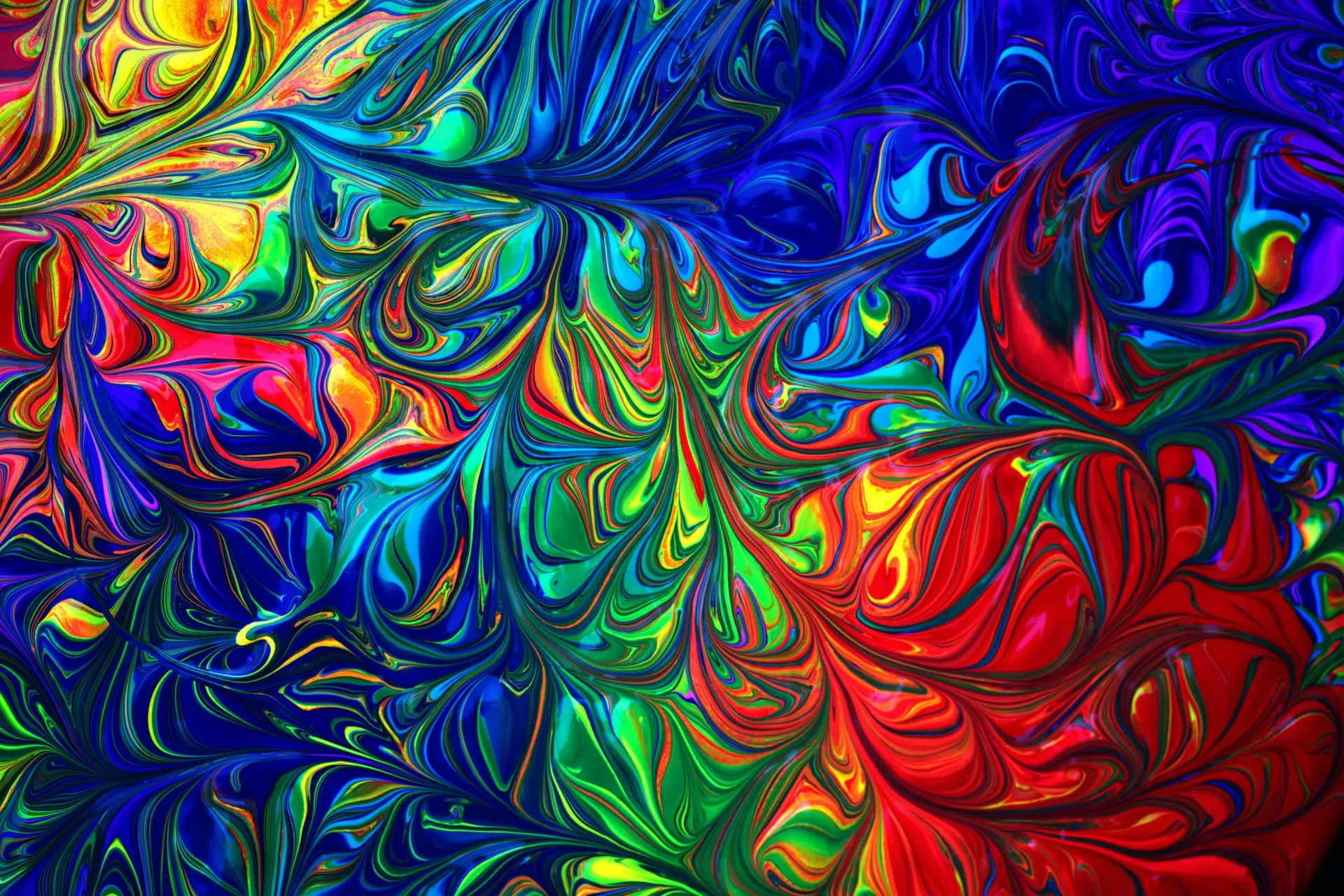Taoist Cosmology: Exploring the Universe

Looking for more amazing products? Check out our online store and explore our collection here! Happy shopping!
Before diving in, please note: This post is for informational purposes only. If you’d like to know more about how we approach topics, feel free to check out our friendly Disclaimer Page.
Hey there, amazing readers! 
We’re committed to delivering quality posts, and your support (even just sticking around despite the ads) means everything to us. So, bear with us, and thanks for helping us keep the good vibes rolling. Now, on to the fun stuff!
TRANSLATE BUTTON AT THE END OF THE ARTICLE
Introduction to Taoist Cosmology
Taoist cosmology is a rich and complex system that seeks to explain the fundamental principles governing the universe.
Rooted in ancient Chinese philosophy, Taoism provides a unique perspective on the nature of reality and the interconnectedness of all things.
At its core, Taoist cosmology is based on the concept of the Dao, which can be thought of as the underlying principle that gives rise to everything in the universe.
By exploring Taoist cosmology, we can gain insights into the nature of existence, the balance of forces, and our place within the greater cosmic order.
Origins of Taoist Cosmology
The origins of Taoist cosmology can be traced back to the ancient Chinese text known as the "Tao Te Ching," attributed to the sage Laozi.
This foundational text outlines the basic principles of Taoism, including the idea of the Dao as the ultimate source of all things.
Over time, Taoist cosmology developed into a more elaborate system, incorporating elements of Chinese mythology, astrology, and alchemy.
Taoist sages and scholars expanded on these ideas, creating a comprehensive framework for understanding the universe and our place within it.
Key Concepts in Taoist Cosmology
Taoist cosmology is built on several key concepts that shape its understanding of the universe.
These include the principles of Yin and Yang, the Five Elements, the Three Realms of Existence, and the role of celestial beings.
These concepts provide a lens through which Taoists view the world, guiding their actions and beliefs in accordance with the natural order of the universe.
By delving into these key concepts, we can gain a deeper appreciation for the intricate tapestry of Taoist cosmology.
Yin and Yang in the Universe
Central to Taoist cosmology is the concept of Yin and Yang, representing the dualistic forces of the universe.
Yin is associated with qualities such as darkness, passivity, and femininity, while Yang embodies light, activity, and masculinity.
These opposing forces are in a constant state of dynamic equilibrium, with each containing the seed of its opposite.
Taoists believe that balance between Yin and Yang is essential for harmony and well-being in the universe, influencing everything from the natural world to human relationships.
Five Elements in Taoist Cosmology
In addition to Yin and Yang, Taoist cosmology incorporates the Five Elements—Wood, Fire, Earth, Metal, and Water.
Each element is associated with specific qualities and attributes, forming a cycle of generation and control that governs the interactions of the natural world.
For example, Wood generates Fire, Fire generates Earth, Earth generates Metal, Metal generates Water, and Water generates Wood.
Understanding the relationships between the Five Elements is key to harnessing their energies and maintaining balance within oneself and the environment.
The Three Realms of Existence
Taoist cosmology divides the universe into Three Realms of Existence—Heaven, Earth, and Human.
These realms represent different levels of reality and consciousness, each with its own unique characteristics and inhabitants.
Heaven is the realm of celestial beings and higher powers, Earth is the realm of mortals and nature, and Human is the realm where spiritual growth and enlightenment take place.
By recognizing the interconnectedness of these realms, Taoists seek to harmonize their actions with the broader cosmic order.
The Dao and the Universe
At the heart of Taoist cosmology is the concept of the Dao, which can be translated as the "Way" or the "Path." The Dao is the underlying principle that governs the universe, encompassing both the seen and unseen forces at work in the world.
Taoists believe that by aligning themselves with the Dao, they can achieve a state of harmony and balance that transcends individual desires and ego.
Through meditation, contemplation, and mindful practice, Taoists seek to cultivate their connection to the Dao and navigate the complexities of existence.
Celestial Beings in Taoist Cosmology
In Taoist cosmology, celestial beings play a significant role in the functioning of the universe.
These beings, which include gods, immortals, and other spiritual entities, are believed to influence the course of events and guide human affairs.
Taoists offer prayers and rituals to honor these celestial beings, seeking their protection and blessings in various aspects of life.
By acknowledging the presence of celestial beings, Taoists express gratitude for the interconnected web of existence that binds all living things together.
The Role of Humans in the Universe
According to Taoist cosmology, humans occupy a crucial role in the universe as mediators between Heaven and Earth.
Through their actions and intentions, humans have the power to influence the balance of forces in the world and shape their own destinies.
Taoists believe in the importance of cultivating virtue, compassion, and humility to fulfill their role as stewards of the earth.
By living in harmony with the natural order, humans can align themselves with the Dao and contribute positively to the cosmic balance.
Practices to Align with the Universe
Taoist practices are designed to help individuals align themselves with the natural rhythms of the universe and cultivate a deeper connection to the Dao.
These practices may include meditation, qigong, tai chi, and other forms of energy work aimed at harmonizing body, mind, and spirit.
By engaging in these practices, Taoists seek to quiet the mind, balance the emotions, and attune themselves to the subtle energies that pervade the universe.
Through disciplined practice and dedication, individuals can enhance their awareness and deepen their understanding of the cosmic order.
Taoist Cosmology in Modern Times
In the modern world, Taoist cosmology continues to inspire and guide individuals seeking a deeper understanding of the universe and their place within it.
While the ancient practices and beliefs may have evolved over time, the core principles of Taoism remain relevant in today’s society.
Many people turn to Taoist teachings for wisdom, solace, and guidance in navigating the complexities of modern life.
By incorporating Taoist cosmology into their daily routines, individuals can cultivate a sense of balance, harmony, and connection to the greater cosmic whole.
Exploring the Mysteries of the Universe
Exploring Taoist cosmology offers a unique lens through which to view the mysteries of the universe.
By delving into the concepts of Yin and Yang, the Five Elements, the Three Realms of Existence, and the Dao, we can uncover profound insights into the nature of reality and our interconnectedness with all things.
Through dedicated study, contemplation, and practice, individuals can deepen their understanding of Taoist cosmology and apply its teachings to enhance their lives.
Embracing the wisdom of Taoism, we can embark on a journey of self-discovery and exploration, unlocking the secrets of the universe one step at a time.
Conclusion
In conclusion, Taoist cosmology provides a fascinating framework for exploring the universe and our place within it.
By understanding key concepts such as Yin and Yang, the Five Elements, and the Three Realms of Existence, we can gain insights into the interconnected nature of all things.
Through practices aimed at aligning with the Dao and cultivating harmony with the cosmic forces, individuals can navigate the complexities of existence with grace and wisdom.
Embracing the mysteries of the universe through Taoist cosmology offers a pathway to deeper self-awareness, spiritual growth, and connection to the greater whole.

The Enlightenment Journey is a remarkable collection of writings authored by a distinguished group of experts in the fields of spirituality, new age, and esoteric knowledge.
This anthology features a diverse assembly of well-experienced authors who bring their profound insights and credible perspectives to the forefront.
Each contributor possesses a wealth of knowledge and wisdom, making them authorities in their respective domains.
Together, they offer readers a transformative journey into the realms of spiritual growth, self-discovery, and esoteric enlightenment.
The Enlightenment Journey is a testament to the collective expertise of these luminaries, providing readers with a rich tapestry of ideas and information to illuminate their spiritual path.
Our Diverse Expertise
While our primary focus is on spirituality and esotericism, we are equally passionate about exploring a wide range of other topics and niches 

To ensure we provide the most accurate and valuable insights, we collaborate with trusted experts in their respective domains 
Our blog originally focused on spirituality and metaphysics, but we’ve since expanded to cover a wide range of niches. Don’t worry—we continue to publish a lot of articles on spirituality! Frequently visit our blog to explore our diverse content and stay tuned for more insightful reads.
Hey there, amazing reader! 
Check out our store here and take a peek at some of our featured products below! Thanks for being awesome!











